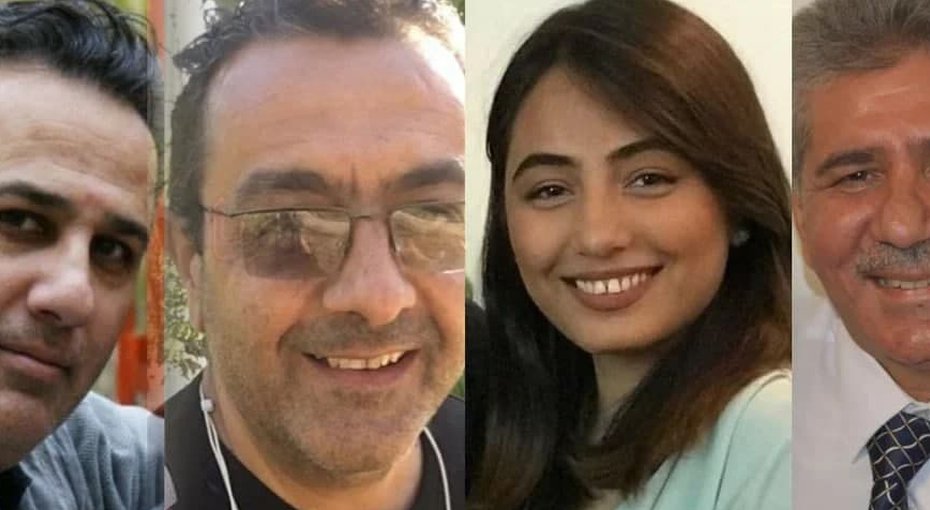Source: humanrightsinir.org

Human Rights in Iran – Thursday, December, 24, 2020 / Branch 2 of the Bandar Abbas Revolutionary Court, presided over by Judge Ali Blader, sentenced eight Baha’i citizens to a total of 14 years in prison.
According to Human Rights in Iran, Adib Haghpajooh, Farhad Amri, Maral Rasti, Arash Rasekhi, Mahnaz Jan Nisar, Nasim Qanavatian, Omid Afaghi, and Ruhollah Afshar, Eight Bahaie Citizen Living in Bandar Abbas, Convicted by Barach 2 of Bandar Abbas Revolutionary Court, Presided over by Judge Ali Blader on the charge « Community and collusion with the intention of disrupting the security of the country » In total, he endured 14 years of imprisonment and as a supplementary punishment, each of these citizens is banned from membership in political and social parties and groups for 2 years, as well as They were also sentenced to 5 sessions of counseling on sectarian issues under the supervision of professors at the Andisheh Sajjadieh Institute in Bandar Abbas.
According to the verdict issued by Branch 2 of the Revolutionary Court of Bandar Abbas, all of these individuals were charged with “gathering and colluding with the intent to disrupt the security of the country,” and Adib Haghpajooh and Farhad Amri were each sentenced to one year in prison. Maral Rasti, Arash Rasekhi, Mahnaz Jan Nisar, Nasim Qanavatian, Omid Afaghi and Ruhollah Afshareach one were also sentenced to 2 years in prison. As an additional punishment for all these people convicted to 2 years ban on membership in political and social parties and groups, as well as ban on participation in Baha’i banquets and gatherings and 5 sessions of counseling on sectarian issues under the supervision of professors at the Andisheh Sajjadieh Institute in Bandar Abbas. These Baha’i citizens will be sentenced to one-third of the additional sentence for the first time if they do not serve a supplementary sentence, and to imprisonment or other 7th or 8th degree punishment if repeated.
According to the directive of the Supreme Council of the Cultural Revolution approved on February 25, 1991, Baha’i citizens are deprived of any citizenship rights and the Government of the Islamic Republic of Iran does all kinds of flagrant violations of human rights along with coercion acts.
The suppression of the Baha’is of Iran violates international human rights instruments, including UDHR article 2, as well as articles 18 and 19 of this valid international document, adding article 18 of ICCPR. Both of these documents have emphasized the importance of performing religious rites, advertising, and instruction, both collectively and privately. Also, having the right to a fair trial is one of the inalienable rights enshrined in article 10 of UDHR.
Note 48 under article 48 of the Islamic Criminal Procedure Code is one of the most controversial legal provisions in the Iranian judicial system, which has been criticized by many lawyers and commentators since its implementation including Amnesty International which has issued a statement reacting to its approval by the Parliament’s Judiciary and Legal Commission on May 16, 2019.
This human rights organization also stressed that in case of the resolution of the Parliamentary Judiciary and Legal Commission being finally approved, it will seriously damage the Iranian judicial system, which is currently full of shortcomings, which it did.
Leave a Reply